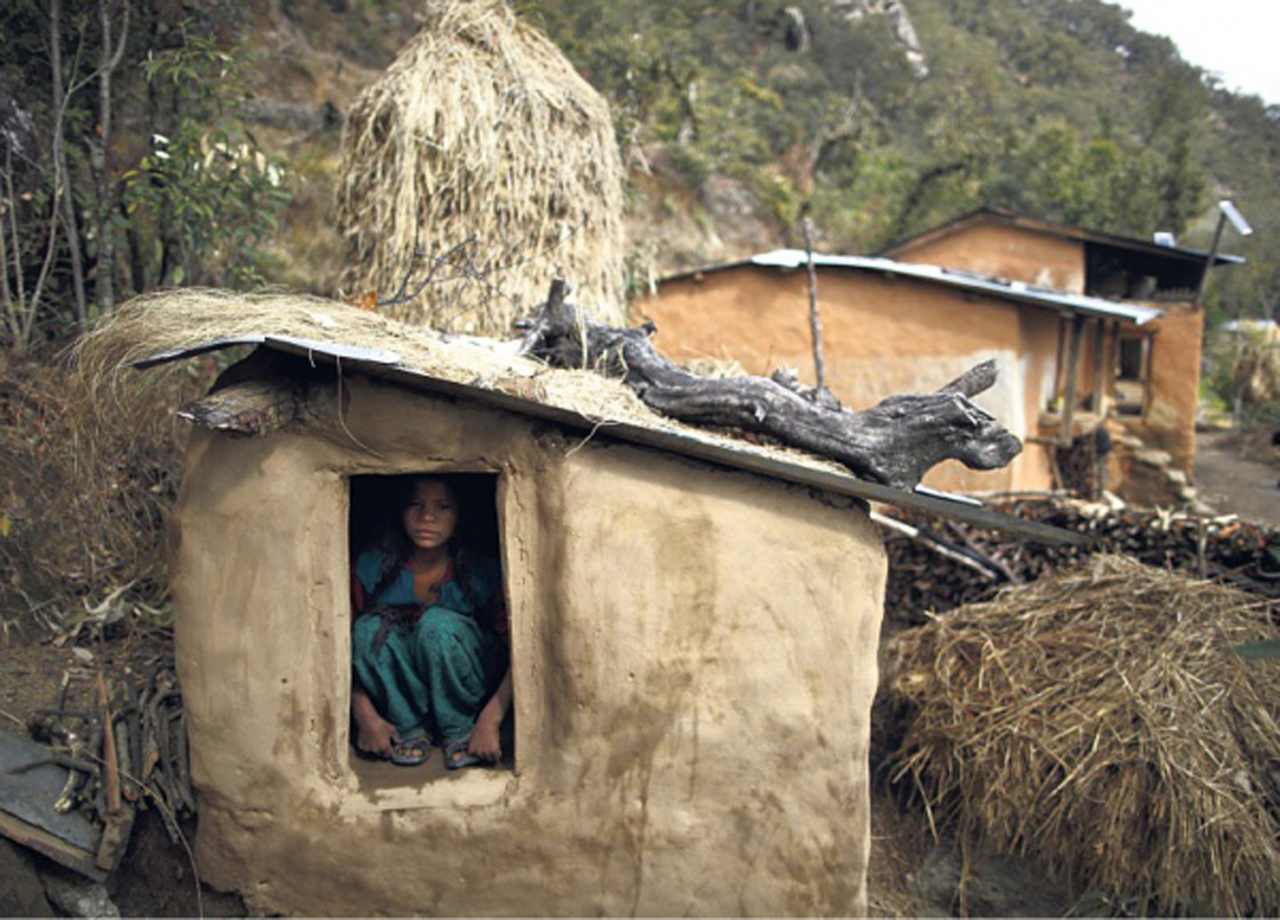June 3, 2016
For four to five consecutive days a month approximately 95% of girls and women in the Mid and Far Western Development regions in Nepal live among the cattle, have limited access to nutritious food, and face many a restrictions in their day-to-day lives (according to information from the Action Works Nepal).
This practice that curtails the mobility of girls and women during her monthly period is called Chaupadi, and essentially entails living in exile for the days that a girl is in her period. The rationale behind this practice is that girls are “impure†during their period and therefore need to be separated and segregated from everything else.
During this period, there is a general expectation for the women to stay in cowsheds and isolate themselves from anything public: the girls and women are banned from interacting with others, sharing food, and barred from using the main water pipes that very often serve as the main source of water supply in the villages.
On the societal level, there are unrealistic and unhealthy expectations placed upon the women through the practice of Chaupadi. On the individual level, research by Action Works Nepal finds that an approximate of 77% women feel humiliated, lonely, and scared while staying in the cowsheds during their periods.
Such a stringent and convoluted practice has obvious harm, not only on the physique of the women, but also the psyche. For example, the United Nations in their Field Bulletin (April 2011) reports instances of diarrhea, pneumonia, respiratory illnesses, danger of attack from snakes, wild animals and drunk men, and incidents of abuse and rape.
Nepal’s Supreme Court outlawed this practice of Chaupadi in 2005. Furthermore, Nepal is also signatory to the Convention on the Elimination of Discrimination against Women. But as with most policies in Nepal, although the country appears very progressive on papers, the implementation and enforcement is frail in comparison and the road to implement this remains a long one filled with socio-cultural barricades. Although this practice is a concern in and of itself, its effect on the level of attendance of girls in school is alarming.
The areas that practice Chaupadi, and areas that don’t explicitly state Chaupadi but practice some form of discrimination against women and girls on their periods, have a high rate of girls who do not attend schools four to five days each month, every year. Her Turn reports that an approximately 30 percent of girls miss school each month because of their periods in Nepal.
Despite the importance of education, something as normal and biological as periods is hindering girls from access to education and keeping girls out of school. The Girl Effect, for example, cites that one additional year of primary school education increases a girl’s future wages by 10-20 percent, while an additional year of secondary schools boosts her chances of income by 15-25 percent.
Beyond the practice of Chaupadi, and besides the socio-cultural barrier, another reason that keeps girls out of school is a lack of proper infrastructures in the schools in the villages. Based on first hand interactions with numerous girls in the Western Development Region in Nepal, many girls have cited a lack of proper toilets in their schools as a reason they do not attend schools every five days a month.
For example, Her Turn cites that 41 percent of girls who do not attend school whilst on their periods do not do so because they do not have the privacy for cleaning and washing at schools. Moreover in schools with toilets, a preference to not use toilets was cited as a problem. Rags and old cloths are still very much the norm for girls and women on their periods as opposed to more sanitary and hygienic alternatives.
The School Management Committees in various schools spread across the country need to have provisions to make women and girl friendly environments to encourage re-enrollment in schools, that they provide sanitary pads to girls on a need basis and they create safe space for girls to come up to the teachers and talk about their concerns.
In addition to this, there should be an emphasis on educating the girls (and the boys alike) about the changes that occur in the human body during adolescence. Our educational curriculum should reinforce lessons that can be drawn on in our everyday lives — it should allow the girls to know what proper hygiene is especially while on their periods. The beginning of periods cannot mean the end of schooling for girls. School enrollment must increase for girls. And in order to do this, girls and boys alike need to be advocates for positive change.
By Ayushma Basnyat
The writer holds an MSc from the University of Oxford.







